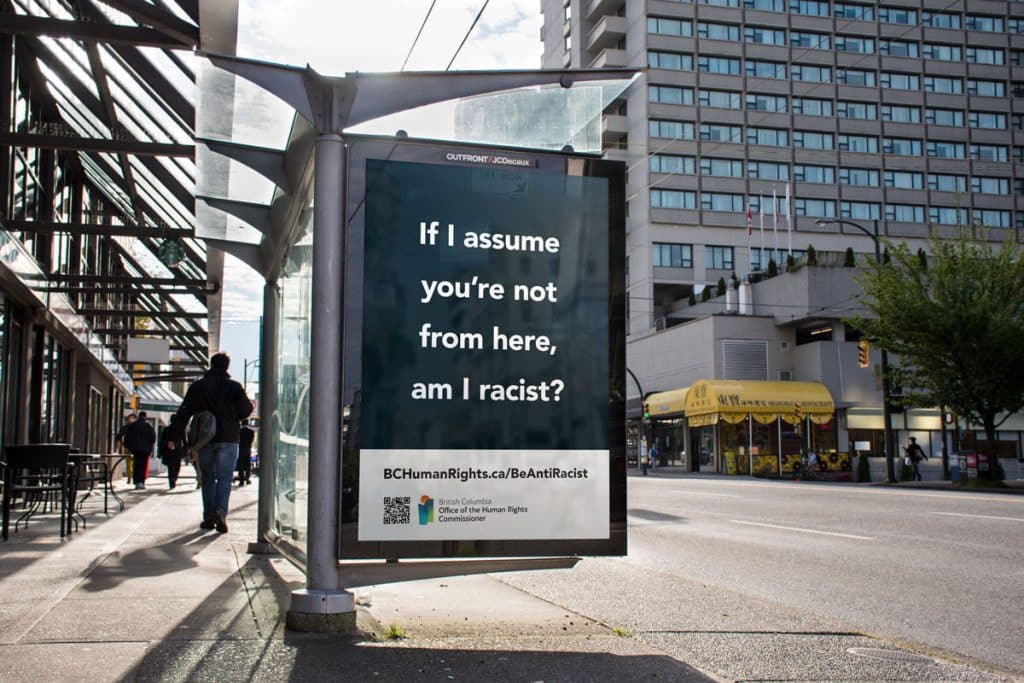If I assume you are not from here, am I racist?
Some of the content in this campaign may trigger you. If you need or want support, please call the Crisis Centre at 310-6789.
Our need for belonging runs deep. Often, this means we split the world into “us” and “them” and exclude others who are not like “us.” Racism thrives on exclusion. Other than people who are indigenous to this land, none of us are really from here — but we all have a right to belong.
— Kasari Govender, B.C.’s Human Rights Commissioner
One question, different…
Meanings
When a white person is asked, “Where are you from?” the questioner is usually asking: “What city or town in Canada are you from?”
When people of colour are asked the same question, the question usually has a different meaning: “You must not be from here — so where are you really from?”
Assumptions
The assumption behind the question is that Canada is a place where people look a certain way. The assumption is Canadians are white and of European background, so people of colour must not be from here.
This question reveals our implicit bias.
Biases
Implicit biases are beliefs we hold on an unconscious or subconscious level that shape the way we view the world — and people — around us.
Explicit bias is where we are consciously aware of our feelings and attitudes. Implicit bias can creep into our worldview without us knowing.
Implicit bias in action
Watch the following video to see examples of implicit bias. Have you seen any of these?
We all have biases. Whether we know it or not, they can cause us to discriminate.
What are your biases?
Learning about your biases is an anti-racist action you can take today.
People may be biased against a certain race, but they don’t even know it. That’s because it could be an implicit bias, which refers to the attitudes or stereotypes that affect us in an unconscious way. Global News explains how the most accessible way to test for it works and what this data means.
Unfortunately, we can’t point you to a reliable implicit bias test for individuals. The well-known Harvard Implicit Attitude Test (IAT) has some shortcomings – you have to take it multiple times and it doesn’t predict discriminatory behaviour. We know of at least four separate studies that say it may show group, rather than individual bias.
Here is what the researchers say about it: Implicit Bias Test FAQs.
This test is not a perfect or complete answer to complex questions – but feel free to try it out as an exercise. It started us thinking about our own implicit biases.



Take the Implicit Bias Test
Please note: you do no have to enter all of the personal information at the beginning, if you don’t want to.

Before you go…
Tell us what effect this information has had on you.

